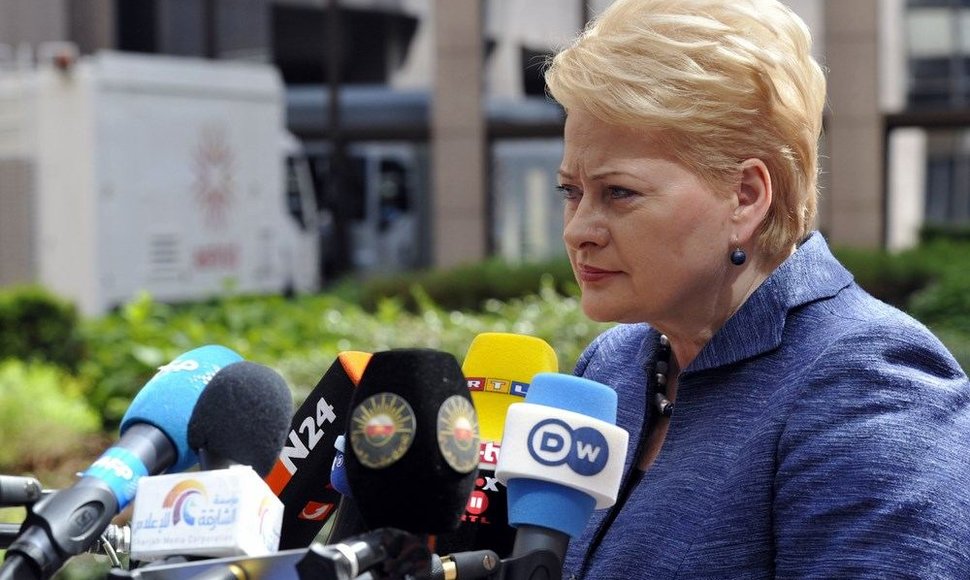"I would definitely not want to comment on the municipality's responsibilities," she told journalists in Brussels, when asked whether the march on Gedimino Avenue should be allowed.
According to Grybauskaitė, the court ruling means that "the municipality is responsible" for agreeing "with those interested in holding any marches."
"Court rulings must be executed, and an agreement must be reached, and the location and everything else is the result of negotiations of the two parties," the president said.
On Thursday, Vilnius authorities refused to allow an LGBT pride march through central Gedimino Avenue in late July, citing security reasons.
The municipality said in a statement that "there's a strong possibility that incidents may repeat, despite the police involvement, and there may also be a threat to the public order, morality, and public security."
Social Democratic Prime Minister Algirdas Butkevičius on Wednesday refused to comment on the issue, saying that it was a matter for officials of Vilnius Municipality to deal with.
The Lithuanian Gay League pledged to appeal against the decision. It has already won one appeal case - a court ordered Vilnius authorities to review its previous decision to allow the pride march only through Upės Street a little further from central Vilnius.
The position of Vilnius authorities was also condemned by Amnesty International.
The Baltic Pride march is planned on July 27.
The first gay pride march in Lithuania took place in 2010, which was also preceded by court hearings on the march location and permission to hold it. The march itself took place eventually, with several hundred people marching through a heavily-guarded territory in the presence of around one thousand protesters.















